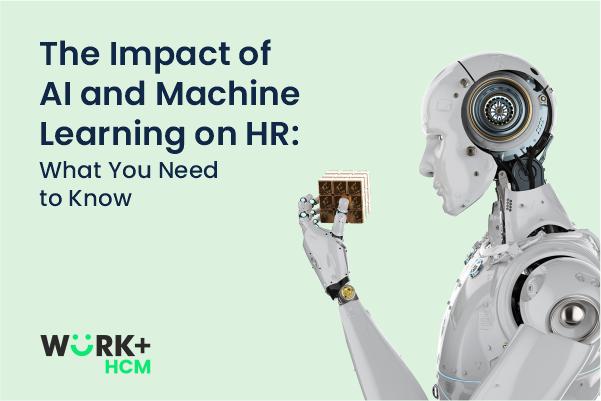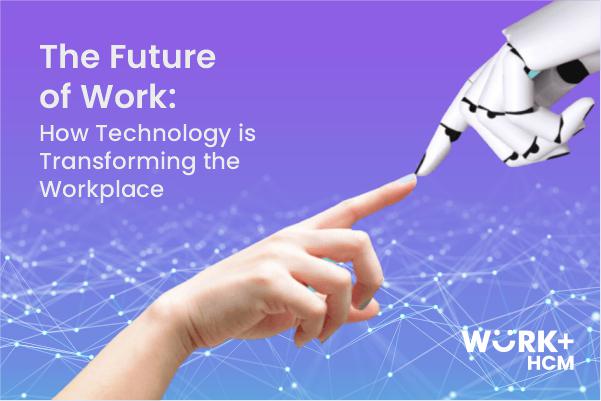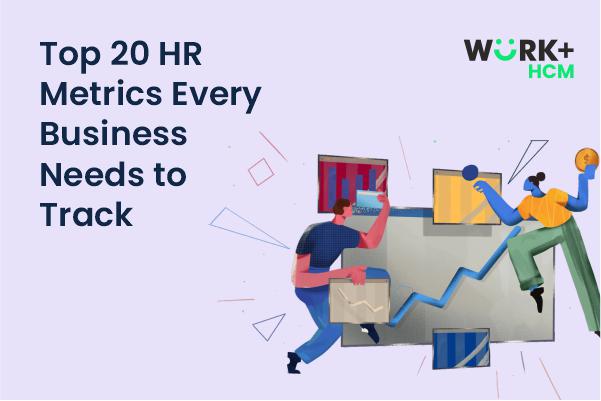Best HR software in UAE

HR Software for SMEs vs Large Enterprises in Dubai
Jessica Calaoagan
October 22, 2025 | 8-mins read
Effective human resource management is a key differentiator that separates successful organizations from the rest in Dubai’s rapidly evolving business landscape. Smart HR software solutions have become a necessity for businesses ranging from SMEs to multinational corporations, as they strive to manage their human resource processes, optimize their operations, and engage their employees effectively. This is the point at which HR Software in the UAE comes into play.
Cloud-based platforms such as Workplus provide SMEs with a wallet-friendly, hassle-free method to deal with HR issues. Such platforms are loaded with features like payroll automation, attendance, and leave management, as well as recruitment, thus enabling smaller organizations to efficiently manage their HR operations without the need for a complicated IT infrastructure.
On the other hand, big companies have to install more advanced systems that can handle their complicated procedures, large and diverse employee groups, as well as operations spread over several departments. Comprehensive HR software solutions for big corporations come with such features as AI-powered analytics, employee performance management, workforce planning, along strong compliance tools.
Understanding HR Software in Dubai
The corporate ecosystem in Dubai is made up of a diversified range of various sectors that have been the main reasons for the increasing demand for HR solutions that are customized to the different organizations’ specific needs. HR Software in UAE is a system that is created to address various parts of human resource management, which are:
- Payroll and benefits administration
- Attendance and leave management
- Recruitment and applicant tracking
- Performance evaluation and succession planning
- Employee self-service portals
- Compliance with UAE labor laws
HR software is a device that both SMEs and large enterprises may implement and gain benefits; nevertheless i.e., the distinctions between their volume, complexity, and functionality requirements are considerable.
Key Differences Between HR Software for SMEs and Large Enterprises
1. Scalability and Flexibility
SMEs: A Small and medium business has to be very cautious with the kind of solutions they pick because it has to be able to scale gradually. Gradually, the enterprise can manage with only the core HR functions such as attendance, leave, payroll, and recruitment. When the company becomes bigger, it is possible to add modules like performance management or HR analytics.
Large Enterprises: A corporate-level HR system is made to handle a huge number of workers and a complicated hierarchical structure. Being adaptable is very important as companies often need the workflows to be exactly like their internal processes, have management for several locations, and be able to integrate with ERP and other enterprise systems.
2. Feature Set
SMEs are primarily interested in the following:
- Automation of payroll and attendance recording
- Management of leaves and absences
- Basic recruitment tools
- Employee self-service portals
Large Enterprises could have such requirements as:
- Highly integrated performance and talent management systems
- Succession planning and employee development tracking
- Complete compliance management
- Workforce analytics and AI-based forecasting
- ERP, CRM, and project management systems integration
The difference between them is substantial: SMEs are focused on finding simple and affordable solutions, whereas big corporations are going for strategic HR capabilities.
3. Implementation and Support
SMEs: The execution is mostly fast and simple, thus it is usually done within a few weeks. Help is given via online tutorials, webinars, and customer service; therefore, the software is available even to small HR teams.
Large Enterprises: The setup is a complicated one; thus, it requires project managers, consultants, and IT support to be dedicated. Big companies frequently require a customer service department in continuation for the purpose of solving problems, system enhancement, and taking the latest versions to guarantee the functioning of the system without any interruptions.
4. Cost Considerations
SMEs: Managing costs in an efficient manner is very important. Subscription-based models are prevalent, thus enabling SMEs to have access to only the features that are necessary for them. Cloud-based solutions lessen the requirement for a large IT investment and at the same time, they provide essential HR functionalities.
Large Enterprises: Despite a higher upfront cost, large enterprises enjoy the benefits of all-inclusive solutions that uplift workforce productivity. Besides the costs for licensing, customization, integrations, and premium support that are usually incurred, the investment leads to the pay-off in the form of increased operational efficiency, compliance, and strategic HR management.
5. Accessibility and Mobility
Mobile access is basically changing the way HR is done in the modern world. For example, in the case of SMEs, mobile apps give employees and managers the freedom to do HR tasks anytime and anywhere, thus leading to higher productivity and engagement. Such platforms as Workplus HRMS Mobile Application provide the means by which attendance, leave approvals, and payroll can be accessed in real time through mobile devices, thus facilitating that HR management is done without waiting, even if one is not physically present in the office.
However, with large companies, mobile HR solutions are often accompanied by features such as analytics dashboards, performance review notifications, and mobile-enabled workflow approvals. Therefore, this allows for the timely making of decisions and the employee experience at different locations to be enhanced.
Compliance and Legal Considerations
Labor rules in Dubai demand that human resource software must accurately handle payroll, employee contracts, and the administration of benefits in order to be in conformity with the law.
- The small and medium enterprises (SMEs) gain advantages from the solutions that make compliance easy, thus they do not need to have deep legal knowledge.
- Big companies need to have very detailed compliance management, audit trails, and also reporting features that are available in different branches so that they can meet the regulatory standards quickly and effectively.
Good HR software is the means by which companies are legally safe, and at the same time, they maintain openness in the management of their workforce.
Strategic Benefits for SMEs and Large Enterprises
SMEs use HR technology to save time from repetitive work, reduce mistakes, and increase efficiency. The HR department, through automation of payroll, leave, and attendance operations, becomes free to engage in other more developmental activities.
Large Enterprises utilize HR instruments to generate in-depth strategic reports. The adoption of employee analytics, talent management, and succession planning systems provides organizations with the necessary information to make the right decisions, integrate HR strategies with the general business goals, and keep a competitive position in Dubai’s talent-driven market.
Conclusion
To sum up, whether to opt for HR software designed for SMEs or that of large enterprises in Dubai is mainly contingent upon factors such as the size, the degree of complexity, and the strategic objectives of the organization.
- Simplified, economically viable solutions that not only streamline the fundamental HR processes but also lessen the administrative workload and help realize business growth are what SMEs have to seek.
- Corporate Giants have to equip themselves with flexible, tailor-made platforms enriched with various advanced features such as predictive analytics, employee engagement, and integration capabilities to efficiently handle complex operations.
Deploying HR Software in the UAE is a must for a company that is looking forward to operational efficiency, compliance, and an engaged workforce of the highest caliber. Companies can perform an initial assessment of the products, such as Workplus, designed for SMEs, avail themselves of mobile solutions like Workplus HRMS Mobile Application for HR management on the move, and take advice from resources such as the Workplus blog in making the final decision on the most appropriate HR software to meet their requirements.
With the right HR software, companies in Dubai can do more with less, make the employees happy, follow the rules, and still be ready for long-term success in a rapidly changing market.
Frequently Asked Questions (FAQs)
Cloud-based HR solutions like Workplus HRMS for small and medium-sized enterprises offer the three Cs, i.e., cost-effectiveness, customer-friendliness, and capacity expansion, thereby making them the best partner for small and medium businesses in Dubai.
Large corporations can employ HR software to improve detailed data analysis, ERP system integration, compliance management, and the use of workforce planning tools that, in the long run, lead to efficient and effective operations.
Yes, it is. In Dubai, cloud-based HR solutions are the option of the majority due to their role in cutting infrastructure costs and providing a secure access point that can be reached from anywhere. Besides, they comply with the data privacy standards that have been set by the UAE.
The main features are automation of salaries, attendance management, employee performance monitoring, compliance with the labor laws of the UAE, and mobile access. Besides, advanced systems can give AI-powered insights and also provide integration features with other organizations’ tools.
First of all, you need to be certain that the size of your company, your budget, and your growth goals are all in harmony. A solution like Workplus would be an excellent fit for small companies as it is simple and affordable; however, a big company might want to go for a customizable and tailored enterprise-grade platform.


